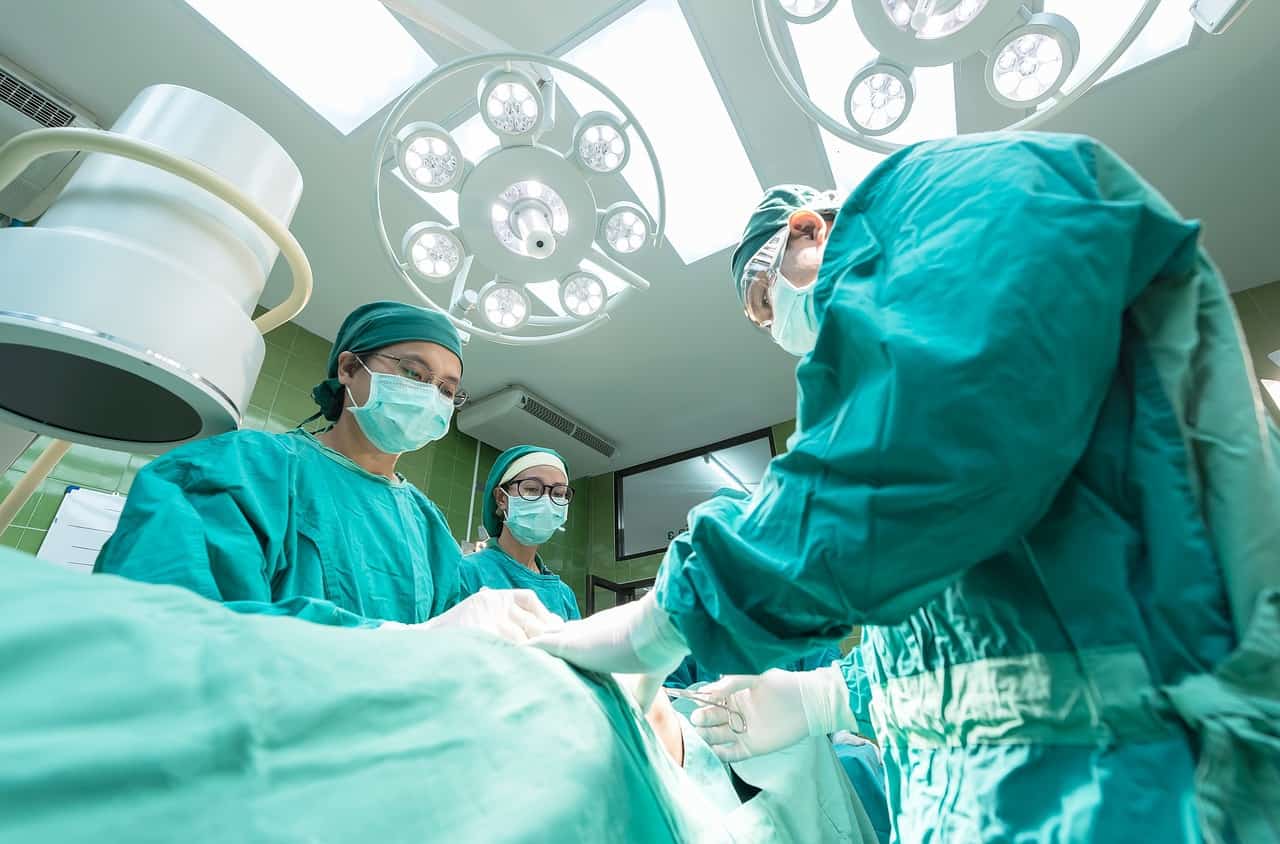- PhentermineLearn more about phentermine and how to get the most from your weight loss journey.
- ResourcesAdditional information and tools to help you make the most of your effort.
- AlternativesLearn more about the most popular weight loss medications and science-backed supplements
5 Reasons Why You Should Avoid Weight Loss Surgery
Published on December 9, 2024

Obesity is a huge deal today, with tons of people trying to lose the extra fluff for a healthier lifestyle. Looking at the big numbers (1), a staggering 650 million adults are up against obesity, while another 1.3 billion are heading that way. This shocking info has folks rushing to find quick solutions to lose weight, sometimes trying stuff that might backfire. Jump in, and you’ll uncover cool strategies and facts to drop pounds the safe way. Why hang around? Because getting the lowdown on losing weight properly might be the breakthrough you’re looking for.
Weight loss surgery has become a rather popular alternative to weight loss strategies and is often utilized by people who find it difficult to lose weight through dieting and exercise alone. Even though common, more than 70% of people who opt for these surgical options are unable to lose a significant amount of weight (2) post-surgery.
Depending on the specific type of weight loss surgery performed, some people do tend to achieve effective results, but the dangers and potential side-effects associated with these surgical procedures are unpleasant and certainly need to be taken into consideration. Healthier weight loss options are available, even when you have already gone through many diets – some options can still help you reduce your weight without surgery.
In this post, we are going to address the types of weight loss surgery that are currently available, consider the main reasons why you should think twice about undergoing these surgical procedures, and take a look at an alternative option that has provided many people with successful results – even those that have already followed many exercise programs and diets.
Types Of Weight Loss Surgeries
There are currently four primary weight loss surgical procedures (3) that people can opt for if they find that they are unable to experience effective weight loss results through the “usual” methods that are often recommended. These surgical procedures each work in their own way, but all of them have the ultimate goal of helping the patient undergo successful weight reduction after the procedure has been performed.
Gastric Bypass
Often also referred to as Roux-en-Y Gastric Bypass surgery, this is a particularly popular option that people often opt for when they are excessively obese and need to lose weight in order to prevent further complications with their health. When a patient undergoes gastric bypass surgery, a small pouch is created at the top of the patient’s stomach, where food will be deposited. The amount of food that the patient can comfortably consume at a time is greatly reduced, leading to a reduction in daily caloric consumption.
Gastric Binding
This surgery is also called Laparoscopic gastric binding and involved a procedure where a balloon is surgically placed into the stomach’s upper section. The balloon is then inflated. Similar to gastric bypass surgery, the balloon causes a small pouch to develop at the top of the stomach, leading to a reduction in the number of calories that the patient will consume on a day-to-day basis. The idea of gastric binding is to get the patient to feel full faster during their meals.
Biliopancreatic Diversion
Another option that is sometimes provided to patients with a significant amount of weight to lose, this one usually comes with a duodenal switch. During the surgical procedure, a surgeon will remove quite a significant part of the patient’s stomach. This causes the stomach’s size to be reduced. In addition to a part of the patient’s stomach is removed, the surgeon will also attach the duodenal to the last part of the intestine. The purpose of the surgery is not only to help the patient eat less, but also to get food to pass faster through the small intestine, which reduces the body’s ability to absorb the calories in the food that the patient consumes.
Sleeve Gastrectomy
Sleeve gastrectomy is not as popular as some of the other options that are used as part of weight loss surgery but is considered to be one of the more effective options. With sleeve gastrectomy, a section of the stomach is actually surgically removed. The part of the stomach that still remains after the removal will then be structured into a tube. The result is a decrease in food consumption during meals, as well as a reduction in the release of ghrelin hormones, which is the hormone that the body uses to regulate a person’s appetite.
Why You Should Avoid Weight Loss Surgery
The evidence is available that suggests some of these surgeries are effective. At the same time, however, side-effects are often also noted. It is not the short-term and acute side-effects that patients experience shortly after the surgery that needs to be addressed, but rather the longer-term effects that these surgeries may impose on the patient’s health and body.
Below, we will share some of the most important reasons why people should really consider alternative solutions first before opting for weight loss surgery as a final approach toward reducing their body weight.
1. Impairment In Nutrient Absorption
One of the first issues that should be noted by individuals who are considering weight loss surgery would be the fact that many of these procedures cause an impairment in the body’s ability to absorb the nutrients that are found in the food they eat. Nutrients such as vitamins, amino acids, protein, fats, minerals, and other compounds all play crucial roles in keeping the body healthy and all systems functioning normally. When nutrients are not absorbed properly by the body, nutritional deficiencies may start to develop.
The malabsorption of nutrients (4) leads to malnutrition, causing symptoms like weakness, excessive tiredness, a weak immune system, impairments in cognitive function, depression, a low mood, a delay in wound healing, and more.
2. Dumping Syndrome
Some types of weight loss surgeries that can be performed causes an increased risk of developing a condition known as “Dumping Syndrome.” This is a long-term complication and side-effect of weight loss surgeries like Bariatric surgical options and can cause the patient to experience a number of very unpleasant symptoms. Dumping syndrome occurs when food starts to move through the first part of the gastrointestinal tract too quickly – primarily from the stomach toward the small intestine.
This condition may cause the patient to experience (5) symptoms like nausea and vomiting, abdominal cramping, diarrhea, bloating, an irregular heartbeat, dizziness, sweating, and weakness. Patients with late Dumping syndrome may also experience a drop in their blood sugar levels.
3. Hypoglycemia
A serious complication that patients should also take note of is the risk of developing hypoglycemia as a consequence or side-effect of weight loss surgery. In most cases, this side-effect occurs in patients who had undergone gastric bypass surgery (6). Hypoglycemia is a term used to describe low blood glucose levels, and this may cause the patient to experience a number of symptoms and further complications in terms of their general well-being.
Early signs of hypoglycemia (7) may include fatigue, shakiness, a change in heart rhythm, irritability, hunger, sweating, and pale skin. As the condition becomes worse, additional symptoms may also start to develop. These may include confusion, a change in behavior, and blurred vision. In more severe cases, the patient may lose their consciousness or even start to suffer from seizures.
4. Internal Hernia
A possible risk that some weight loss surgeries, such as gastric bypass, poses include the development of an internal hernia. One scientific publication (8) stresses the fact that this is another possible serious complication that patients need to take into account before they decide to undergo such a surgical procedure.
A hernia is serious and can sometimes lead to life-threatening complications, which is why this possible risk should receive attention. Pain, discomfort, inflammation – these are the most common symptoms that a patient would experience when they develop a hernia, but complications may include a restriction in their digestive tract, which can cause them to experience potentially life-threatening complications.
5. A Bag Of Skin
The idea of weight loss surgery is to help the patient drop excess weight fast following the surgical procedure. While this may be seen as an advantage, especially when the patient is finding that their weight is affecting their health, a visual complication that many people tend to notice when they do lose the weight is sagging skin that develops in the area where weight is lost.
While the loose skin may not have a significant impact on the patient’s physiological well-being, it can cause them to suffer greatly in terms of their mental wellbeing. These patients often tend to develop anxiety, low self-esteem, and often also depression-related symptoms.
The Effective Alternative To Weight Loss Surgery: The Lipotropic 16:8 Diet
Now that we have gone through some important reasons why you should think carefully about undergoing a surgical procedure to help you lose weight, the question remains – what are you to do in terms of losing weight if diet and exercise don’t seem to work for you, and weight loss surgery may present dangerous complications.
The good news is, you haven’t tried it all – and there are programs, diets, and lifestyles out there that have helped thousands of people lose weight successfully without having to undergo gastric bypass or any other type of surgical procedure.
The Lipotropic 16:8 diet is one of the best examples, as thousands of people have had non-significant results with more conventional methods, yet they were able to lose weight effectively when they opted for this “lifestyle” version of fasting.
The idea behind the Lipotropic 16:8 diet is to present the patient a new lifestyle that will promote more effective weight loss and also reduce their risk of gaining more weight. The diet includes eight hours each day where eating food is allows, whereas the other 16 hours of the day is spent fasting.
The diet alone has already provided many people with the tools they need to lose weight. There is no need for any special tools to be added – even though there are supplements that could be helpful, it is still completely possible to lose weight quickly, but also safely, through the Lipotropic 16:8 diet alone – with no supplements or special arrangements being made in order to accompany this new “lifestyle”.
Conclusion
While there are some surgical procedures that can help you lose weight in a relatively short period of time, the dangers and possible side-effects associated with these procedures often do not outweigh the benefits. The Lipotropic 16:8 diet has proven results and often works for those who have already followed a countless number of weight loss programs with no noticeable results to show for their efforts. This is more a lifestyle than a diet, and is extremely easy to follow, with significant weight loss results that will make you feel like you are truly living again.
References
(1) http://www.who.int/news-room/fact-sheets/detail/obesity-and-overweight
(2) https://www.eatingdisorderhope.com/blog/lapband-bariatric-surgery-statistics
(3) https://www.mayoclinic.org/tests-procedures/gastric-bypass-surgery/in-depth/weight-loss-surgery/art-20045334
(4) https://www.nhs.uk/conditions/malnutrition/symptoms/
(5) https://www.niddk.nih.gov/health-information/digestive-diseases/dumping-syndrome
(6) https://www.healio.com/endocrinology/diabetes/news/print/endocrine-today/%7B1dc23215-49dc-4ad7-90da-346ba16663d6%7D/post-gastric-bypass-hypoglycemia-a-serious-complication-of-bariatric-surgery
(7) https://www.mayoclinic.org/diseases-conditions/hypoglycemia/symptoms-causes/syc-20373685
(8) http://bariatrictimes.com/internal-hernia-after-laparoscopic-gastric-bypass-a-review-of-the-literature/


